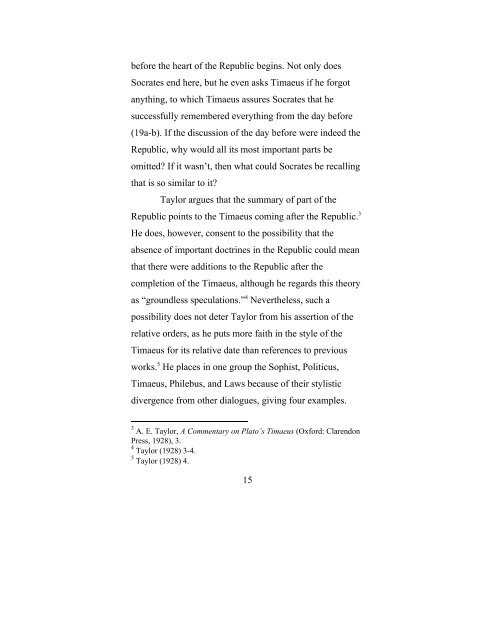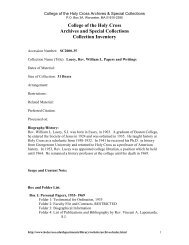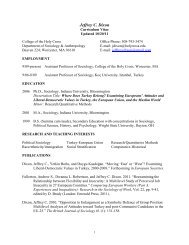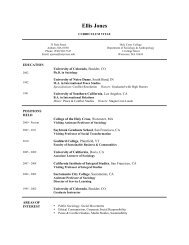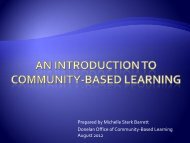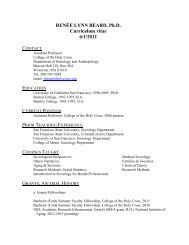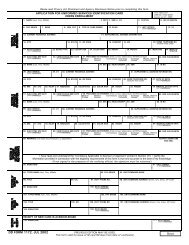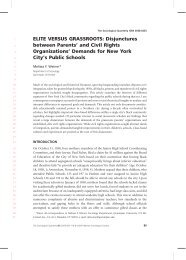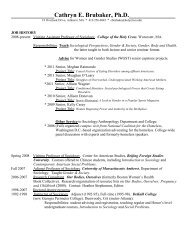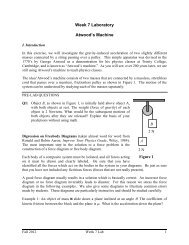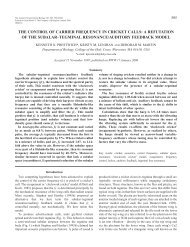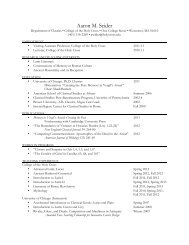Here - Academics - College of the Holy Cross
Here - Academics - College of the Holy Cross
Here - Academics - College of the Holy Cross
You also want an ePaper? Increase the reach of your titles
YUMPU automatically turns print PDFs into web optimized ePapers that Google loves.
efore <strong>the</strong> heart <strong>of</strong> <strong>the</strong> Republic begins. Not only does<br />
Socrates end here, but he even asks Timaeus if he forgot<br />
anything, to which Timaeus assures Socrates that he<br />
successfully remembered everything from <strong>the</strong> day before<br />
(19a-b). If <strong>the</strong> discussion <strong>of</strong> <strong>the</strong> day before were indeed <strong>the</strong><br />
Republic, why would all its most important parts be<br />
omitted? If it wasn’t, <strong>the</strong>n what could Socrates be recalling<br />
that is so similar to it?<br />
Taylor argues that <strong>the</strong> summary <strong>of</strong> part <strong>of</strong> <strong>the</strong><br />
Republic points to <strong>the</strong> Timaeus coming after <strong>the</strong> Republic. 3<br />
He does, however, consent to <strong>the</strong> possibility that <strong>the</strong><br />
absence <strong>of</strong> important doctrines in <strong>the</strong> Republic could mean<br />
that <strong>the</strong>re were additions to <strong>the</strong> Republic after <strong>the</strong><br />
completion <strong>of</strong> <strong>the</strong> Timaeus, although he regards this <strong>the</strong>ory<br />
as “groundless speculations.” 4 Never<strong>the</strong>less, such a<br />
possibility does not deter Taylor from his assertion <strong>of</strong> <strong>the</strong><br />
relative orders, as he puts more faith in <strong>the</strong> style <strong>of</strong> <strong>the</strong><br />
Timaeus for its relative date than references to previous<br />
works. 5 He places in one group <strong>the</strong> Sophist, Politicus,<br />
Timaeus, Philebus, and Laws because <strong>of</strong> <strong>the</strong>ir stylistic<br />
divergence from o<strong>the</strong>r dialogues, giving four examples.<br />
3 A. E. Taylor, A Commentary on Plato’s Timaeus (Oxford: Clarendon<br />
Press, 1928), 3.<br />
4 Taylor (1928) 3-4.<br />
5 Taylor (1928) 4.<br />
15


